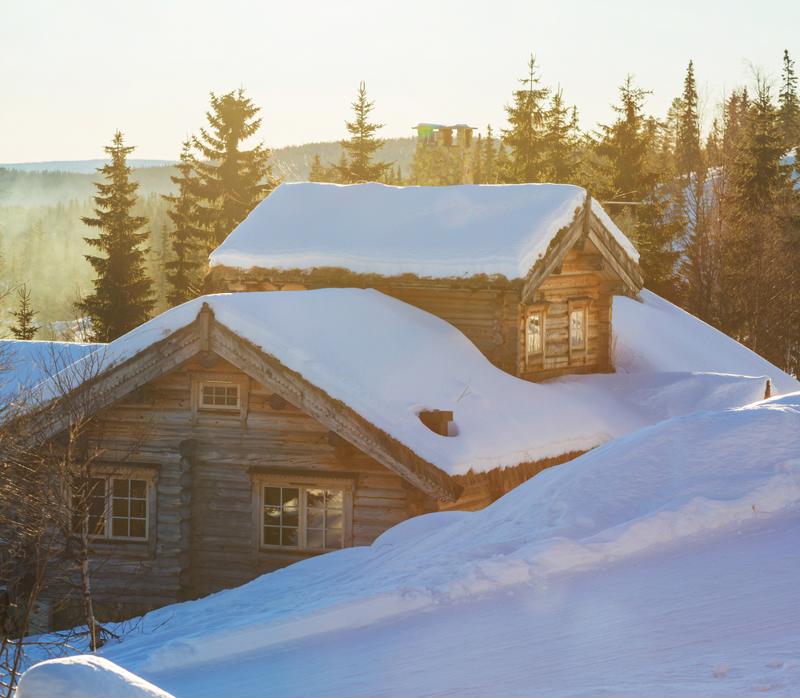Log cabins, like most homes, become easier to rent with the more useful amenities that are included. Adding a tankless water heater spices up a cabin in an already inundated market. Just ask Don Cates, the founder of Real McCoy Cabins a new luxury cabin campsite in Pocahontas, Virginia, that just opened up.
"They have a full bathroom, shower, sink," Don Cates said to the Bluefield Daily Telegraph. "A toilet obviously. A kitchenette with an apartment-sized refrigerator. Full size kitchen sink. Eating area. Heat. Air conditioning. We have, of course, hot water. Tankless water heaters."
Installing a tankless water heater adds value to a cabin in multiple ways, including providing unrivaled performance to other technology on the market, as well as keeping cabins and renters safe.
 Tankless water heaters are perfect for a log cabin's limited size.
Tankless water heaters are perfect for a log cabin's limited size.Performance, above all else
Cabins can provide a cozy, serene place to view an unbeatable natural setting. A loud, clanging water heater that sticks out like a sore thumb in the corner of the cabin can be a turn off for many buyers. This scenario can be avoided with a tankless water heater. The versatility in size lets home owners tuck it away anywhere – under a sink, outside or in a rarely used corner of the cabin. Also, once it is installed, it's easy to forget about. Storage water heaters have an average 10 to 15 year life span, according to the Department of Energy, but tankless water heaters can last for up to 20 years with minimum maintenance necessary.
"Tankless water heaters are 8 to 34% more energy efficient than storage."
Owners should be looking for the best possible return on their investment. The DOE pointed out that water heating can be a very costly expense for a home – up to 18 percent of its total utility costs. The DOE also found that tankless water heaters are incredibly energy efficient, and are anywhere from 8 to 34 percent more energy efficient than their antiquated counterpart, the storage water heater. This is achieved through their on-demand heating system. Instead of wasting money by reheating tepid water, like a storage water heater does when standby heat loss occurs, the water is only heated as needed. Adding low-flow faucets to sinks around the home reduces the amount of water needed, as well, by cutting down on the output of water.
Conserving as much energy as possible leaves a reduced carbon footprint, which helps the cabin contribute to the health of the nature it finds itself embedded in. This is a selling point the homeowner can tout to prospective renters. Not only does the owner save money on utility bills, but a green-friendly cabin could bring in more money than one that isn't, which allows for a higher rate of investment on the cabin.
Provide renters with a sense of safety
While accidents are uncontrollable, they can be curbed. Particular tankless water heater models prevent bacteria growth – especially legionella, a respiratory disease that can develop from standing, heated water, according to the Centers for Disease Control and Prevention.
With water still in mind, tankless water heaters also come with a thermal optic sensor that keeps it at a safe temperature. This prevents spikes in temperature at the faucet, a dangerous occurrence that can scald children and older people. Over 500,000 people are scalded every year, with children under 4 and adults over 65 being the most at risk, according to The Burn Foundation. In fact, the source explained that 17 percent of all childhood scald hospitalizations have been due to hot tap water. Avoid litigation and personal injury by choosing a water heater that doesn't contribute to the problem.

